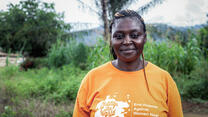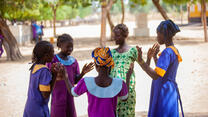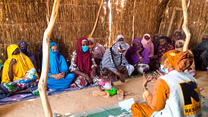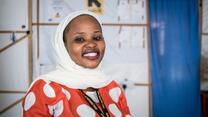Aishatu and Catherine are on a mission to uplift the women around them.
Their motivations are personal. “I looked at the little opportunity I had compared to the men around me,” 29-year-old Catherine explains. “I had limited time to study, because I was responsible for all the chores as a woman. I always had high expectations on my shoulders — but looking at where I am now, I’ve been able to overcome all of this.”

Catherine now wants to see other women reach their potential. Working for the IRC, she now goes out into the community and speaks directly to displaced women about their rights.
“[Women in the camps] where I work don’t have a clear understanding of their rights,” she says. “They live in poor conditions and are highly dependent on men for their livelihoods — which often affects their decisions to stay in abusive relationships.”
Through funds from the European Union (EU), Catherine helps the IRC run safe spaces for women and girls, ensures that they meet their basic needs, and conducts community awareness sessions against gender-based violence.
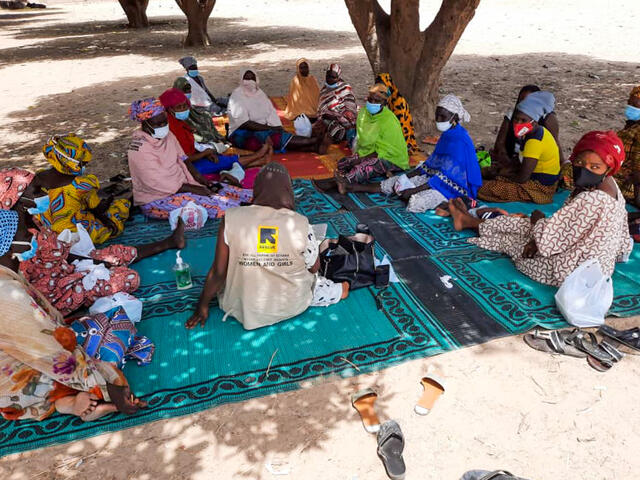
Catherine draws inspiration from female leaders. “I feel inspired by women who assume leadership positions and act as a support system for other women coming up. Looking at them gives me strength to believe I can be anything, no matter how the world sees me — if she can, then I can too!”.
Looking at them gives me strength to believe I can be anything, no matter how the world sees me — if she can, then I can too!
Aishatu, a Roving Midwife with the IRC’s EU-funded health clinics in the northeastern state of Borno, shares this passion. “Putting a smile on [women’s] faces and giving them hope in difficult times is what motivates me to keep doing the work,” she says.

Aishatu’s passion to become a midwife stems from her childhood. She grew up watching her grandmother, who was a midwife in their community, attend to the needs of her fellow community members. “I saw how she helped people during the process of delivery, and how the community respected and appreciated her in kind,” she says.
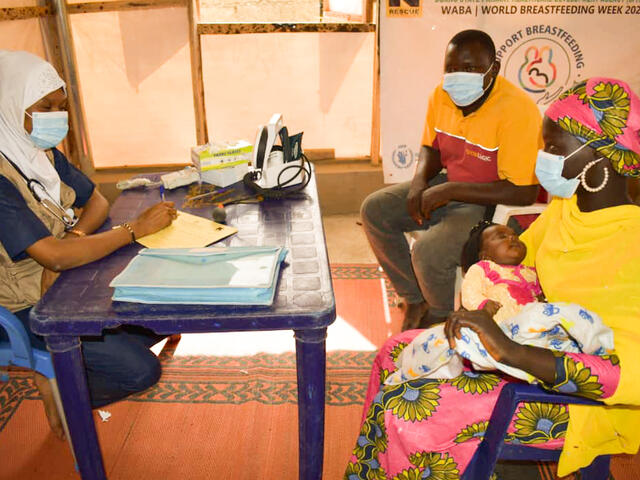
Aishatu helps treat women with common health issues such as infection, malnutrition and disease. Carrying out field visits to communities, Aishatu’s efforts are vital for women who face transport constraints and a lack of proper healthcare infrastructure. “Community-based healthcare is important,” she says. “It increases acceptance of these services among its members, and gives the community ownership over the healthcare they’re being provided.”

Aishatu leads sessions with young girls and women from the camps, raising awareness around their rights, reproductive health, and what services they can access. “We support women to make informed decisions about their rights. We give them hope in trying and confusing times,” says Aishatu, smiling.
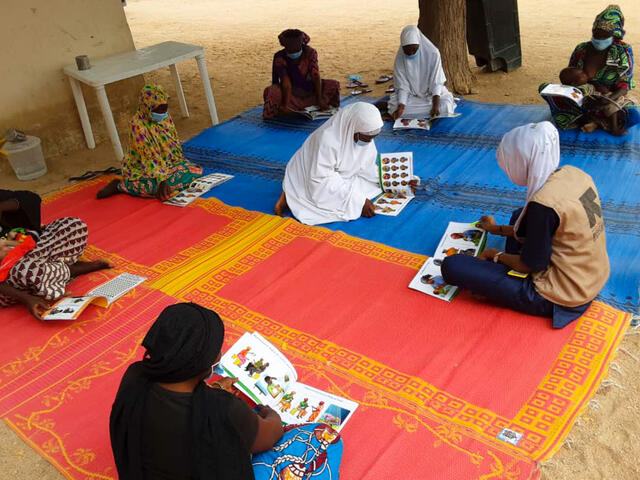
Both Catherine and Aishatu face similar challenges at work; unpredictable security situations, fear of attack and abduction — and now, the threat of COVID-19. But at the end of the day, both of them share a common goal which keeps them undeterred in their mission to be a support system to women.
Being a woman means being myself, finding my own voice in an unfair society, and helping others do the same.
"Seeing women and girls recovering from situations they’ve lost hope over, regaining their strength to face life again, and supporting others in turn — that’s the most rewarding part of my job,” says Catherine.
“To me, being a woman means being myself, finding my own voice in an unfair society, and helping others do the same” says Catherine.
“Being a woman means being a role model,” agrees Aishatu. “Encouraging education among young girls, giving women job opportunities and leadership positions, and striving for gender equality — I hope that these efforts will lead to a better future for women and girls in Nigeria”.
The International Rescue Committee partners with the European Union to provide life-saving support to people caught in conflict and disasters around the world. Our work funded by the EU enables people to survive, recover and rebuild their lives.

